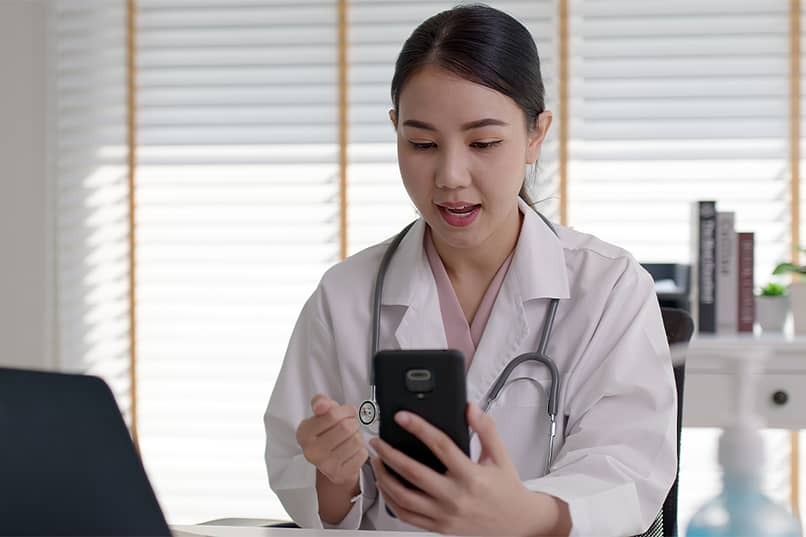You’re seated on your couch, laptop open, awaiting your virtual addiction counseling session. Telehealth is gaining popularity, particularly in fields like addiction counseling, where privacy and convenience are crucial.
Experience seamless accessibility to addiction counseling with just a few clicks, connecting you to specialized professionals from the comfort of your home. Eliminate the hassle of rushing to appointments or reshuffling schedules. With telehealth, accessing support becomes effortless, breaking down barriers and promoting consistent treatment engagement. Enjoy the convenience of accessing help while savoring your tea, thanks to technological advancements.
However, telehealth can initially feel intimidating and awkward. You might wonder, “How do I do a telehealth visit?” This guide will walk you through everything you need to make the most of your telehealth addiction treatment.
How to Prepare for Your Telehealth Addiction Treatment Session

Preparing for your telehealth addiction treatment session involves several steps to ensure a smooth and effective experience. Following these steps ensures you’re well-prepared for your telehealth addiction treatment session, setting the stage for a productive and beneficial experience.
Choose a quiet, private area with minimal distractions for your session. Ensure good lighting and a comfortable seating arrangement.
Check that your internet connection is stable and that your device (computer, tablet, or smartphone) is charged and working properly. Test your video and audio to ensure clear communication.
Have any relevant documents, such as medical history, current medications, or previous therapy notes, readily available. This information can help your counselor better understand your situation.
Confirm the date, time, and platform for your session. Make a note of any specific instructions provided by your counselor, such as login procedures or forms to fill out beforehand.
Take some time before the session to mentally prepare yourself. Reflect on what you want to discuss during the session and any goals you hope to achieve. Consider any concerns or questions you have about the telehealth process.
Approach the session with an open mind and willingness to participate. Be honest and transparent with your counselor about your thoughts, feelings, and experiences related to your addiction.
Surround yourself with items that promote relaxation and comfort, such as a favorite blanket or soothing music. Having these familiar comforts nearby can help ease any anxiety or apprehension.
Turn off notifications on your device and let household members know you’ll be in a session to minimize interruptions—close unnecessary tabs or applications on your computer to maintain focus.
What to Expect During Your VIrtual Counseling Visit
During your virtual counseling visit, you can expect to go through a similar process as you would during an in-person session. However, instead of meeting with your counselor face-to-face, you will communicate with them online, such as through video conferencing or messaging.
The session will begin with an initial assessment, where the counselor will gather information about your addiction history, personal background, and any challenges or issues you are currently facing. This will help them get a better understanding of your situation and determine the appropriate treatment plan.
Based on the information obtained during the assessment, you and your counselor will work together to set goals for your treatment. These goals can be both short-term and long-term and will be tailored to your specific needs and circumstances.
Virtual addiction counseling typically involves regular therapy sessions, where you will engage in open and honest conversations with your counselor. They will provide guidance, support, and evidence-based therapeutic techniques to help you navigate through the challenges of addiction. The sessions may cover topics such as coping mechanisms, relapse prevention strategies, and addressing underlying issues related to addiction.
Virtual addiction counseling typically involves regular therapy sessions, where you will engage in open and honest conversations with your counselor. They will provide guidance, support, and evidence-based therapeutic techniques to help you navigate through the challenges of addiction. The sessions may cover topics such as coping mechanisms, relapse prevention strategies, and addressing underlying issues related to addiction.
Addiction counseling often involves developing new skills and strategies to manage cravings, triggers, and other challenges related to addiction. Your counselor will help you build these skills and provide ongoing support throughout the process. They may also encourage you to participate in support groups or connect with other resources in your community.
Your counselor will regularly assess your progress toward the established goals and make adjustments to the treatment plan if necessary. They will track your achievements, address setbacks, and work collaboratively with you to ensure your recovery is on track.
It is important to note that virtual addiction counseling is conducted in a secure and confidential manner, following the same ethical and professional standards as in-person counseling. The length and frequency of sessions may vary depending on your individual needs and the treatment plan agreed upon with your counselor.
What Devices Can Be Utilized During a Telehealth Visit?

When participating in telehealth sessions, you can use various devices, depending on your preference and accessibility:
- Computer or Laptop: Computers or laptops are commonly preferred for telehealth due to their larger screens and superior camera/microphone quality.
- Tablet: Tablets like iPads or Android devices offer a balance between computers and smartphones, combining portability with a larger screen for clearer communication.
- Smartphone: Smartphones are convenient for telehealth, despite their smaller screens, offering a satisfactory experience for those on the go or preferring compact devices.
- Smart TVs: Some telehealth platforms support smart TVs, enabling sessions from your living room for a larger display. However, this may entail extra setup or accessories.
- Specialized Telehealth Devices: Healthcare providers may offer specialized telehealth devices with built-in cameras, microphones, and medical sensors for comprehensive remote consultations.
How to Make the Most of Your Telehealth for Addiction Recovery
Telehealth offers a convenient way to get addiction treatment right from home. To have the most productive sessions, here are some tips to keep in mind:
Choose a room where you can speak freely without distractions or interruptions. Let family members know you need privacy during your appointment time. A space where you feel comfortable will help you open up to your therapist or counselor.
Make sure you have a strong internet connection and that your device-phone, tablet, or computer-is fully charged. Test that your camera and microphone are working properly. Log into the telehealth service a few minutes early to ensure there are no technical difficulties. The last thing you want is tech issues interfering with your session.
Your therapist or counselor will likely want to know how you’ve been doing since your last visit. Be ready to share any challenges you’ve faced, coping strategies you’ve tried, and your general progress. Having notes or a journal to refer to can help jog your memory so you make the most of your limited time.
Don’t hesitate to ask any questions you may have about your treatment, medications, side effects, or anything else related to your recovery. Telehealth visits move quickly, so speak up if there’s something specific you want to address. Your therapist or counselor is there to provide guidance and support.
Telehealth for addiction treatment may be relatively new, but research shows it can be just as effective as in-person therapy. By taking some time to prepare for your virtual sessions, you’ll find telehealth offers a convenient way to get the help and accountability you need, wherever you are. Staying committed to your recovery is challenging enough—telehealth makes it that much easier.
Crestview Offers a Telehealth Program for Addiction
Discover a pathway to recovery from addiction with Crestview’s groundbreaking telehealth program. In the comfort of your own space, access comprehensive support and guidance through virtual visits tailored to your needs. Learn how to embark on a telehealth visit effortlessly, ensuring seamless communication with our dedicated professionals. Your transformation begins with a simple click – reach out and reclaim your life now.
































